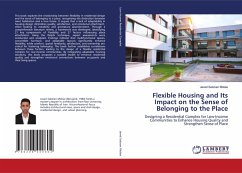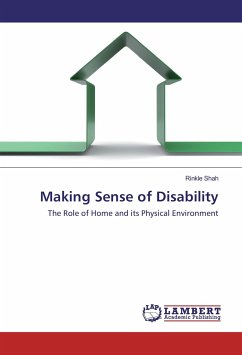This book explores the relationship between flexibility in residential design and the sense of belonging to a place, recognizing the distinction between mere habitation and a true home. It argues that a lack of adaptability in housing design diminishes quality, satisfaction, and emotional attachment, often leading to instability and premature abandonment. Through a comprehensive literature review, a framework was developed, identifying 21 key components of flexibility and 27 factors influencing place attachment. Using the Delphi technique, expert assessments were conducted and analyzed. Findings indicate that multifunctional spaces, convertible furniture, and adaptable layouts significantly enhance flexibility, while comfort, spatial familiarity, satisfaction, and ownership are critical for fostering belonging. This book further establishes correlations between these factors, leading to the design of a flexible residential complex for low-income communities. By integrating adaptable housing solutions, this book proposes a scalable model to enhance residential quality and strengthen emotional connections between occupants and their living spaces.
Bitte wählen Sie Ihr Anliegen aus.
Rechnungen
Retourenschein anfordern
Bestellstatus
Storno








